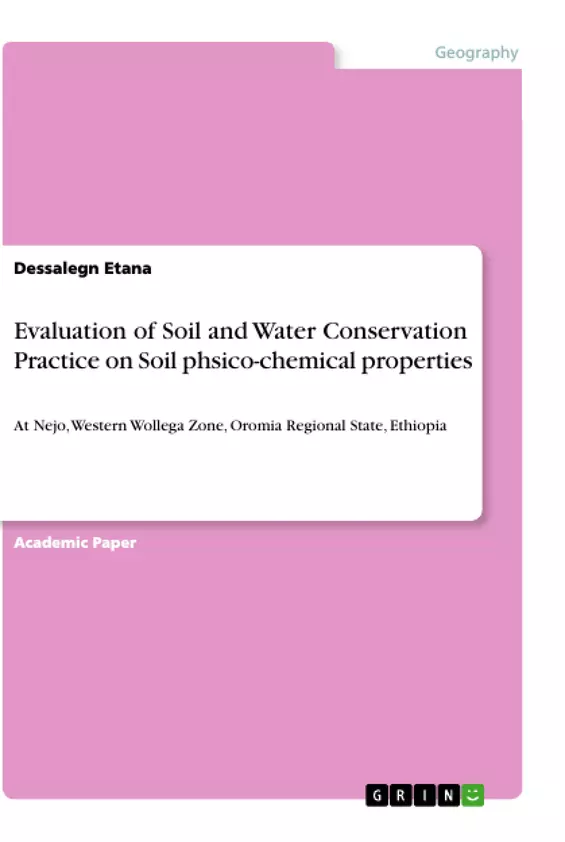Land degradation is a pervasive problem that negatively influences agricultural productivity in Ethiopia as it cause depletion of soil organic matter. Therefore, implementation of soil and water conservation is believed to mitigate the impacts of soil erosion. An on-farm study was conducted in Arjo Gudetu kebele, Eastern Wollega of Oromia with the objective of evaluating soil and water conservation practices on soil physio chemical properties and productivity of crop lands. The study involves one factor: level soil bund (with and without) was a main plot. The treatment (Treatment1=with bund splited in to 12 and Treatment2 = without splited in to 10) with randomized complete block design. Soil sample were collected at 0-50cm and 30-60cm soil depth and analyzed for selected physical and chemical properties. Yield and yield components of the crops were determined using a quadrant sampling technique 1*1m. The data was analyzed using general linear model procedures and to separate difference between mean LSD (5%) was used. On maize (Zea Mays L.) field, level soil bund increased the mean value of soil moisture contents at 0-30 cm and 30-60 cm soil depth, the grain yield increased by 26% and biomass increased by 22%. On sorghum (Sorghum bicolor L.) field the mean value of soil moisture content, days to flowering, maturity dates significantly affected and biomass was increased by 8.25%.
Inhaltsverzeichnis (Table of Contents)
- CHAPTER ONE: INTRODUCTION
- 1.1. Background and Justification
- 1.2. Statement of the problem
- 1.3. Objective of the study
- CHAPTER TWO: MATERIALS AND METHODS
- 2.1. Description of the study site
- 2.2. Experimental Design and Treatments
Zielsetzung und Themenschwerpunkte (Objectives and Key Themes)
This research evaluates the impact of soil and water conservation practices, specifically level soil bunds, on soil physio-chemical properties and crop productivity in the Nejo district of Western Wollega Zone, Oromia Regional State, Ethiopia. The study aims to provide empirical evidence regarding the effectiveness of these conservation measures in enhancing maize and sorghum production by conserving water and plant nutrients.
- The impact of soil and water conservation practices on soil physio-chemical properties
- The role of level soil bunds in improving soil physical properties
- The effect of level soil bunds on soil chemical properties
- The influence of soil and water conservation measures on crop yield and yield components
- The contribution of level soil bunds to sustainable agriculture and food security in the study area
Zusammenfassung der Kapitel (Chapter Summaries)
Chapter One provides a comprehensive introduction to the research, outlining the background and justification for the study. The chapter highlights the issue of land degradation in Ethiopia, emphasizing the importance of soil and water conservation practices in mitigating its detrimental effects. The specific objectives of the study, focused on evaluating the impacts of level soil bunds, are also detailed.
Chapter Two delves into the materials and methods used in the research. It describes the study site, including its geographical location and agro-ecological zones, and the experimental design employed. The chapter explains the treatments implemented, focusing on the application of level soil bunds in enhancing crop production.
Schlüsselwörter (Keywords)
The main keywords and focus topics of this research include: land degradation, soil erosion, soil and water conservation, level soil bunds, crop productivity, maize, sorghum, soil physio-chemical properties, sustainable agriculture, and food security. These terms represent the core concepts and research focus of the study, highlighting the importance of exploring the effectiveness of soil and water conservation practices in enhancing agricultural practices and ensuring food security in Ethiopia.
- Quote paper
- Dessalegn Etana (Author), 2019, Evaluation of Soil and Water Conservation Practice on Soil phsico-chemical properties, Munich, GRIN Verlag, https://www.grin.com/document/507051



